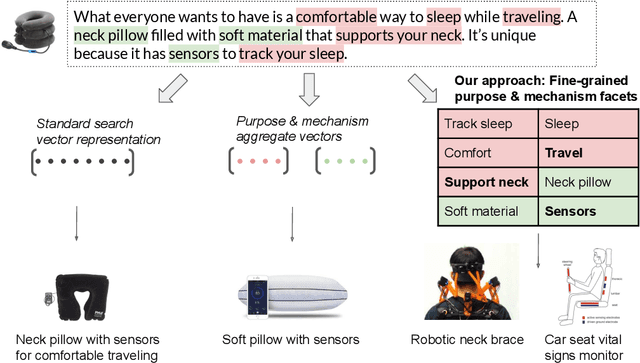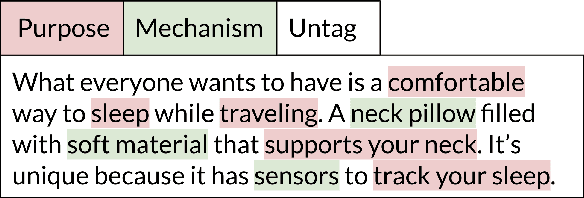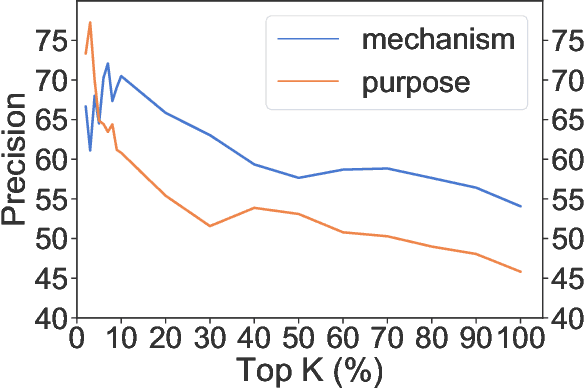Scaling Creative Inspiration with Fine-Grained Functional Facets of Product Ideas
Paper and Code
Feb 19, 2021



Web-scale repositories of products, patents and scientific papers offer an opportunity for creating automated systems that scour millions of ideas and assist users in discovering inspirations and solutions. Yet the common representation of ideas is in the form of raw textual descriptions, lacking important structure that is required for supporting creative innovation. Prior work has pointed to the importance of functional structure -- capturing the mechanisms and purposes of inventions -- for allowing users to discover structural connections across ideas and creatively adapt existing technologies. However, the use of functional representations was either coarse and limited in expressivity, or dependent on curated knowledge bases with poor coverage and significant manual effort from users. To help bridge this gap and unlock the potential of large-scale idea mining, we propose a novel computational representation that automatically breaks up products into fine-grained functional facets. We train a model to extract these facets from a challenging real-world corpus of invention descriptions, and represent each product as a set of facet embeddings. We design similarity metrics that support granular matching between functional facets across ideas, and use them to build a novel functional search capability that enables expressive queries for mechanisms and purposes. We construct a graph capturing hierarchical relations between purposes and mechanisms across an entire corpus of products, and use the graph to help problem-solvers explore the design space around a focal problem and view related problem perspectives. In empirical user studies, our approach leads to a significant boost in search accuracy and in the quality of creative inspirations, outperforming strong baselines and state-of-art representations of product texts by 50-60%.
 Add to Chrome
Add to Chrome Add to Firefox
Add to Firefox Add to Edge
Add to Edge